CULTURAL HERITAGE AT RISK – RWANDA’S VANISHING PAST VESTIGES
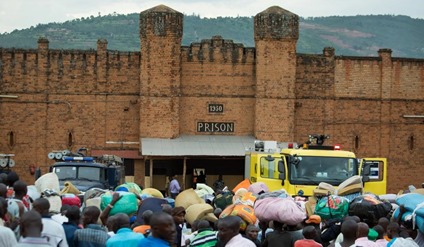
A wake-up call to Heritage Management and Governance
“You can wipe out an entire generation, you can burn their homes down to the ground, and somehow they will find their way back. But if you destroy their history, if you destroy their achievements then it’s as if they never existed”, George Clooney.

“the former 1930 prison”
For too long, the significance of cultural heritage has been underestimated, despite its crucial role in human survival. Just as we cannot deny our biological roots, our heritage is an inherent part of us. Artefacts, monuments, buildings, museums, and other cultural elements hold diverse values, from symbolic and historical to artistic and scientific. These values deeply shape our identities, loyalties, and behaviors. Whether we acknowledge them or not, we are bound to our heritage.
But how do modern societies engage with these remnants of the past? How do they reinterpret history to suit their present needs, often based on material evidence from bygone eras?
Africa boasts a wealth of cultural heritage, spanning diverse aspects of culture, history, and civilization. However, the colonial period in the 19th century brought significant disruption, leading to the abandonment of traditional management systems.
Colonial powers imposed top-down management models, shifting control from communities to centralized governments. With this, African heritage lost its social and political essence, reduced to a scientific matter and often confined to protected areas consequently displacing people from decision-making in the management of their heritage. Colonialism also reshaped the perception of heritage, imposing Western values and dismissing traditional beliefs as superstition. This disconnect from ancestral culture severed many Africans from their heritage, eroding integral belief systems. In essence, colonization not only altered heritage management structures but also imposed foreign perspectives, distancing Africans from their cultural legacies.
Rwanda, akin to numerous African nations, bears the imprint of its vibrant and distinct history, culture, and natural surroundings, which echo its pre-colonial, colonial, and post-colonial experiences. Although boasting a significant array of captivating heritage sites and structures, the preservation of these treasures remains precarious, largely due to a deficiency in professional management. Despite some strides in heritage preservation in recent years, many of these sites scattered throughout the country languish in neglect, failing to realize their potential as testaments to Rwanda’s profound and extensive history.
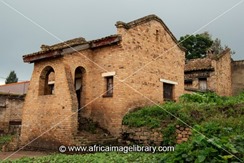
Urusisiro rw’ involiwe I Ngoma, Huye (Only two left standing)
But the question is, how do we make sense of our past?
Understanding our past requires a multifaceted approach, particularly in the realm of heritage management. This involves an interdisciplinary program focused on preserving and interpreting historic and archaeological sites, recognizing their significance in regional development through cultural tourism. Historically, Rwanda’s tourism sector has primarily revolved around natural heritage and wildlife tourism. However, with the advent of Vision 2050, there’s a concerted effort to diversify tourism offerings, with cultural heritage poised to play a more significant role. Cultural tourism is identified as a cornerstone of the National Cultural Heritage Policy, holding tremendous potential for national economic development. Yet, realizing this potential demands concerted efforts from various stakeholders, not solely the government. Proper attention from professionals and public understanding are essential for safeguarding Rwanda’s cultural heritage resources. Engaging diverse stakeholders, including the private sector, is imperative in heritage conservation efforts. This collaborative approach ensures that Rwanda’s rich cultural legacy receives the attention it deserves, benefiting both the present and future generations.
National/Local Museums
National and local museums play a crucial role in shaping our understanding of the past and present through effective exhibit development, a key aspect of museology. These exhibits should not only capture the attention of the audience but also provide meaningful insights and learning experiences. Museums serve as repositories of materials and information that can significantly enrich school curricula across various disciplines. Collaboration between educational planners and museum experts is essential to effectively integrate museum resources into the curriculum at all levels of education. Cultural heritage and conservation concepts should be prominently featured in educational programs and curricula. For instance, it’s pertinent to ask whether there are adequate courses on “Cultural Heritage, Conservation, History of Architecture” within the curriculum of the Architecture Department. Such courses are crucial because they provide architecture students with a deeper understanding of cultural heritage and conservation principles, which are integral to their field of study. By incorporating these concepts into education, we ensure that future professionals are equipped to appreciate and preserve our cultural heritage effectively.
The Place of the University of Rwanda and Other Higher Institutions of Learning
Higher institutions of learning, including the University of Rwanda and other universities/or higher learning institutions, play a pivotal role in safeguarding cultural heritage through theoretical education and applied training. Recognizing the significance of cultural heritage preservation, it’s imperative to instil an understanding of its role and importance from an early stage, starting within educational institutions. Preserving cultural heritage requires specialized professionals with a diverse range of knowledge and skills. Universities, as centres of higher learning, have a responsibility to contribute directly to capacity building and knowledge production in heritage matters. Moreover, there’s an urgent need to disseminate the findings of cultural heritage research to the public. Without widespread understanding and engagement from the local communities, particularly those residing near heritage sites, conservation efforts are likely to falter. Ownership of cultural heritage becomes challenging when communities do not comprehend or share the concern for its preservation.
Therefore, universities should actively engage in outreach programs to communicate research outcomes and involve local communities in heritage conservation initiatives. By fostering a sense of ownership and understanding among the populace, higher institutions of learning can significantly contribute to the sustainable safeguarding of cultural heritage for future generations.
Stakeholders in Heritage Governance
In the governance of heritage, it’s essential to involve various stakeholders in a comprehensive and interdisciplinary manner. This framework encompasses site interpretation, visitor management, conservation, education, economics, finance, planning, and promotion. In Rwanda, the relationship between the state-governed heritage sector and communities is varied. While initiatives like those run by the Rwanda Cultural Heritage Academy offer outreach and education programs, there’s a noticeable absence of collaborative or participatory models of heritage management advocated by scholars in the field. Often, management processes neglect to include local and resident populations or consider their interests adequately. Additionally, coordination among national institutions responsible for cultural heritage protection or engagement remains lacking. Therefore, there’s an urgent need for a stakeholder mapping exercise to define roles effectively and realign each stakeholder’s responsibilities in the management and enhancement of cultural heritage. This exercise would ensure that all relevant parties are engaged in decision-making processes and that their interests are taken into account, leading to more inclusive and effective heritage governance.
Legal framework and policies
Effective preservation and management of heritage necessitates the establishment of appropriate legal frameworks and policies. In Rwanda, heritage management was initially regulated under a Belgian colonial-era decree from 1939, which primarily focused on protecting material heritage such as built heritage, archaeological sites, and artefacts. Control over listing and protection was vested in the Governor General.
However, in 2016, this Belgian-era statute was replaced by a new law that broadened the scope of heritage to encompass both tangible and intangible aspects, including folklore and traditional knowledge. This law, along with the National Culture Heritage Policy established in 2008 and renewed in 2015, adopts an inclusive approach to heritage, emphasizing its significance for development goals.
Furthermore, the gazetted Ministerial Order of 9/2/2024 addresses the classification of tangible cultural heritage and modalities of its use and income generation. Despite these legal and policy instruments, there remains a gap in their promulgation and implementation. Management processes often neglect to involve local populations or consider their interests, maintaining a top-down approach that disempowers the primary custodians of their heritage.
Even when local stakeholders are superficially consulted, they lack the capacity and authority to manage sites and monuments in their localities effectively. Therefore, there’s a need for greater dissemination and enforcement of these laws and policies, as well as meaningful involvement of local communities in heritage management processes, to ensure sustainable preservation and promotion of Rwanda’s rich cultural heritage.
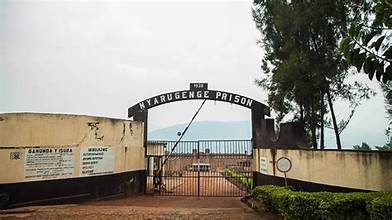
Built heritage represents a collective cultural asset belonging to humanity, and it’s imperative to transmit its unique qualities to future generations. Conservation principles dictate that buildings and structures must be protected and preserved. Various professionals, each with their specialized skills and abilities, assess and determine the conservation status of cultural heritage. They then implement measures to mitigate degradation processes, ensuring their long-term preservation.
Those working with cultural heritage must possess the ability to analyze and interpret data effectively. They must also be capable of planning and directing interventions and coordinating with other professionals involved in the preservation efforts. Collaboration among different disciplines is essential for the successful execution of activities related to cultural heritage conservation. By working together, these professionals contribute to safeguarding and maintaining the integrity of built heritage for the benefit of present and future generations.
Conclusion;
- Rwanda, with its abundant cultural sites, holds immense untapped potential. We must seize this opportunity and take decisive action before irreparable losses occur.
- Embracing our national identity and celebrating our country’s achievements is natural. However, it’s crucial to do so with a profound respect for our past and a recognition of its dignity.
- While culture and development may seem incompatible at times, they can coexist harmoniously. Economic development and heritage conservation can complement each other, leading to mutually beneficial outcomes.
- Integrating Heritage Impact Assessments (HIA) into development activities is essential. By incorporating HIA within the framework of integrated conservation and sustainable development, we can ensure that development initiatives respect and preserve our cultural heritage while fostering progress.
NKUSI David
dnkusi2@gmail.com or d.nkusi@heritagemanagement.org.
Related Articles
Why Animals Are a Key Piece of Africa’s Disaster Resilience Puzzle
Across Africa, people and animals have coexisted for centuries, not just sharing...
Leaders Call for Stronger Monitoring to Turn Ecosystem Restoration Commitments into Results
Nairobi, Kenya — 27 January 2026 Country and regional leaders, alongside technical...
Worm Tea: A Natural Path to Farming Without Harmful Chemicals
For much of his early farming life, Isaac Mubashankwaya believed chemical fertilizers...
Enroll Now Before 31 December 2025: International German Language Exams Launch in Rwanda
Rwanda will host the European Consortium for the Certificate of Attainment in...


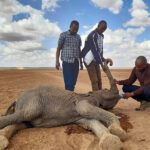
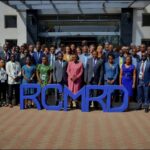


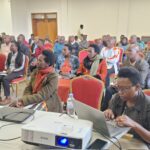



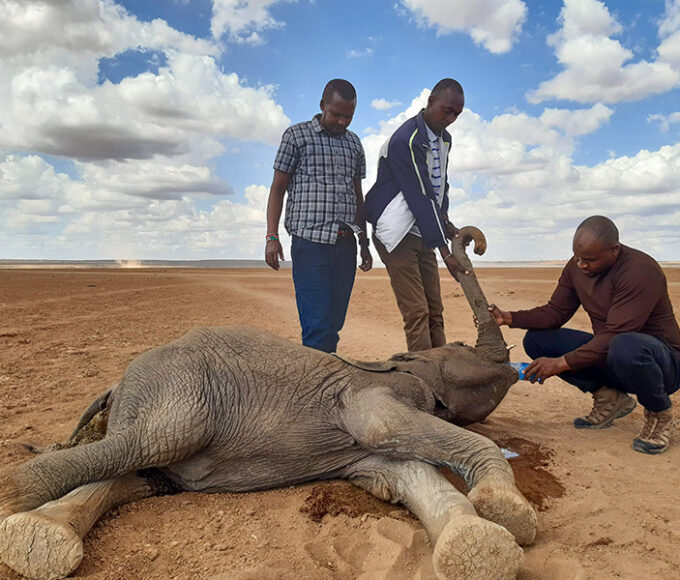
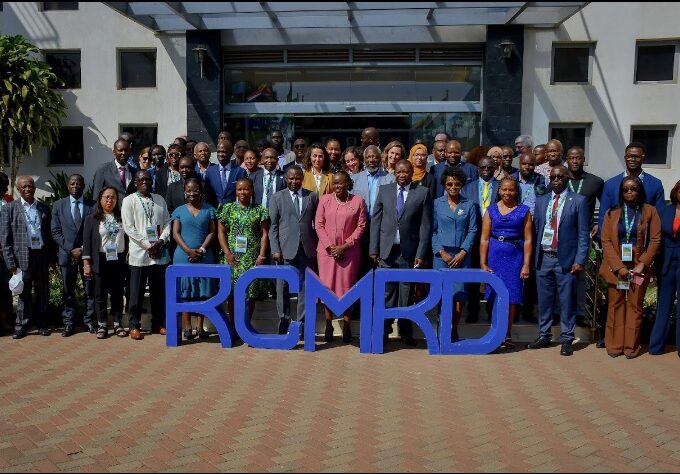
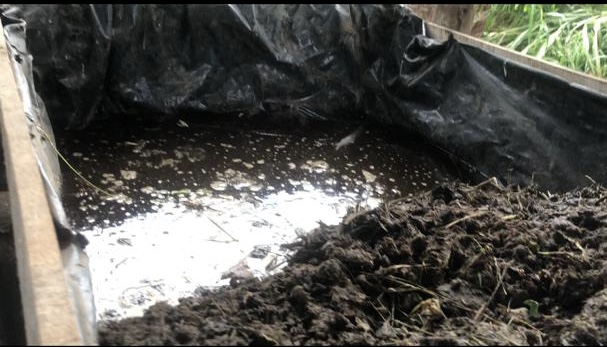
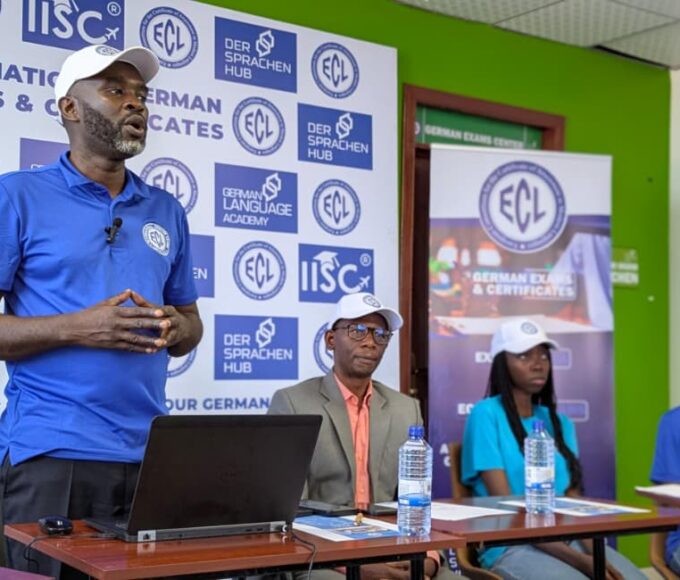
Leave a comment